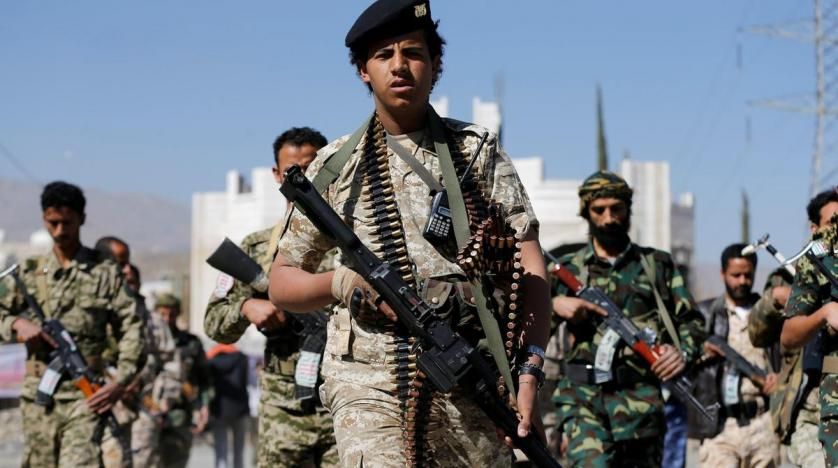Over the past few days and after his return from Saudi Arabia to Aden in southern Yemen, the president of Presidential Leadership Council Rashid al-Alimi talked about founding a new military unit called Nation Shield Force (NSF).
According to Arab sources, the initial nucleus of the new force was compiled and organized in September last year under Al-Yaman Al-Saeed (Happy Yemen) name and then developed under Nation Shield Force in a number of southern provinces. Turki al-Maliki, the spokesman of the Arab coalition, mentioned A-Yemen Al-Saeed Brigade for the first time last January in the operation to capture Shabwa province.
According to the decision of al-Alimi as the commander-in-chief, these forces officially operate as part of the armed forces. This new force consists of 7 brigades with 14,000 militants, equipped with all the modern weapons provided by Saudi Arabia and trained on Saudi soil and will also be directly financed by the Saudis. It is distributed across Yemen, from the borders of Saada and Al-Jawf provinces in the north to Shabwa and Hadhramout provinces in the east, and from Aden, Lahij and Abyan in the south to and Hudaydah and Taiz in the West.
An important point is that most of the fighters of this new force are Salafi-affiliated militias who have already fought with several battalions in the provinces of Marib, Shabwa, Abyan and Lahij under the New Giants Forces name.
Saudi goals
Foundation of this force with full support from Saudi Arabia is undoubtedly expressive of the brewing severe competition with the UAE, another influential party in the south, to get a foothold in southern Yemen. It has been years that nothing but a symbolic layer is left of the Saudi-Emirati coalition and the two countries are involved in a tough and serious rivalry with each other for Yemeni port cities’ resources and geopolitical interests. Their competition not only did not end with the 2019 deal for power distribution between Saudi-backed Abdrabbuh Mansour Hadi and the UAE-backed Southern Transitional Council (STC), but also continued with higher intensity.
But the formation of new force should be considered as stepping in a new stage and level of competition between Saudi Arabia and the UAE because it should be regarded as an action by Riyadh to reduce the presence and dominance of the forces affiliated with the STC, including the Security Belt Forces and the Southern Giants Brigades in Aden and other southern cities, especially in the oil-rich province of Hadhramout. A number of brigades of the NSF have already been stationed in this province. At the end of 2022 and with Saudi assistance, the NSF captured Al-Aand Air Base, the second largest military base in Yemen and overlooking Bab-el-Mandeb and the Gulf of Aden. The capture was meant to limit the STC’s role in the control of the southern provinces, said observers.
Al-Arabi Al-Jadeed news outlet, quoting some sources, reported that three brigades of Nation Shield Force are stationed in different areas of Lahij province, one brigade is in Ad Dali’ province, one in Aden, and another in Abyan, the areas in which the UAE-affiliated forces have gradually developed their presence and influence during the war. Now, copying the UAE, Saudi Arabia has found a way to strengthen its foothold in the southern provinces of Yemen, not through the continuation of relations with the self-proclaimed Aden administration but through stationing its loyal militias in areas in finds necessary.
Destabilizing effects: early end of Presidential Leadership Council?
While an outlook of intensified proxy competitions between Saudi Arabia and the UAE is growing clearer with the foundation of the new force in the south, it seems that the initial goal behind foundation of the Presidential Leadership Council to unite the ranks of various forces in the south and grant legitimacy to Aden cabinet is left unfinished midway. Actually, the Council was planned to unite all the armed groups under the flag of its defense ministry, but al-Alimi’s decision confirms that it is impossible to integrate these forces. For example, upon return of al-Alimi to Aden, Al-Yaman Al-Saeed Brigade stormed Al-Maashiq Palace in Aden, infuriating the STC.
Naturally, with the Saudi foundation of a new proxy force
in the south, distrust and armed clashes for shares in the power would
increase and this means bolstered militarization of the southern Yemeni
regions, especially that the STC is expected to expand range of its
military advances to neutralize this Saudi move.
/129

